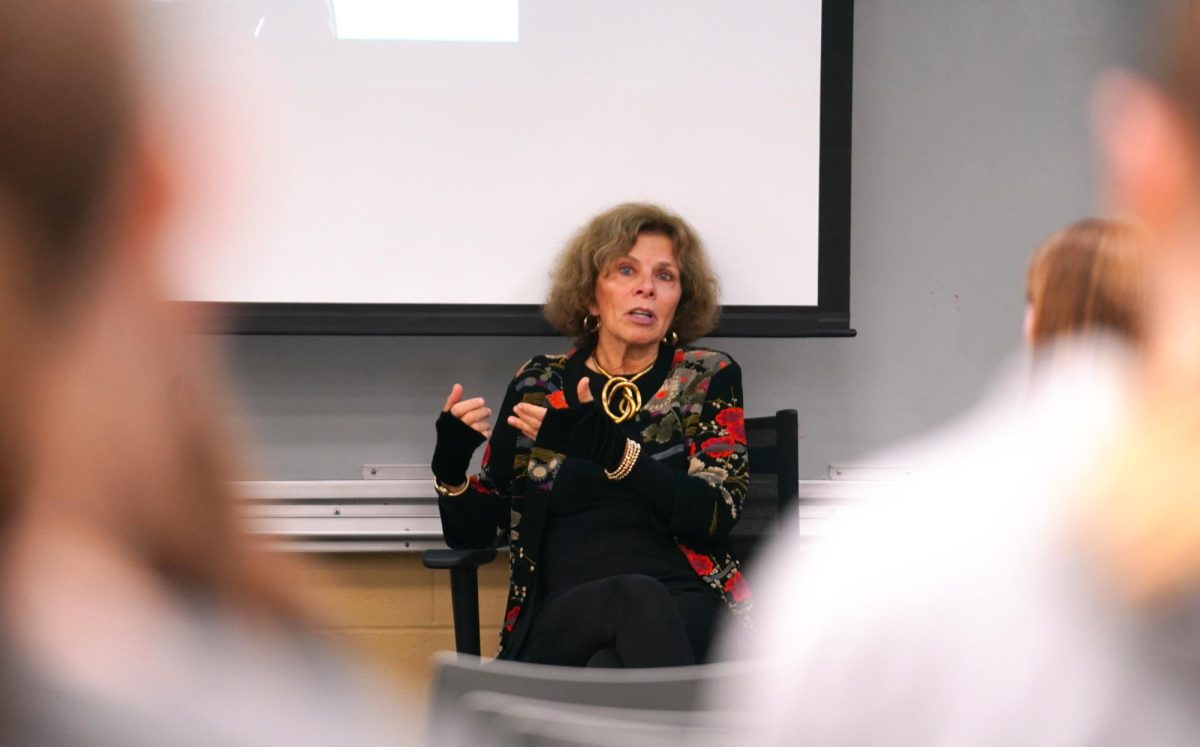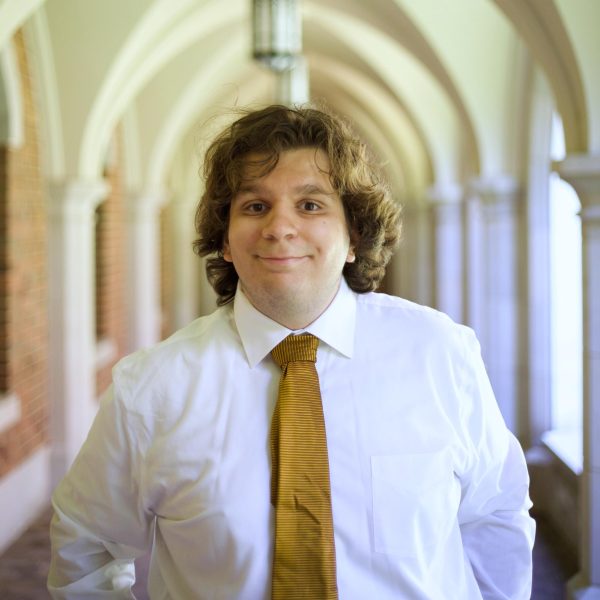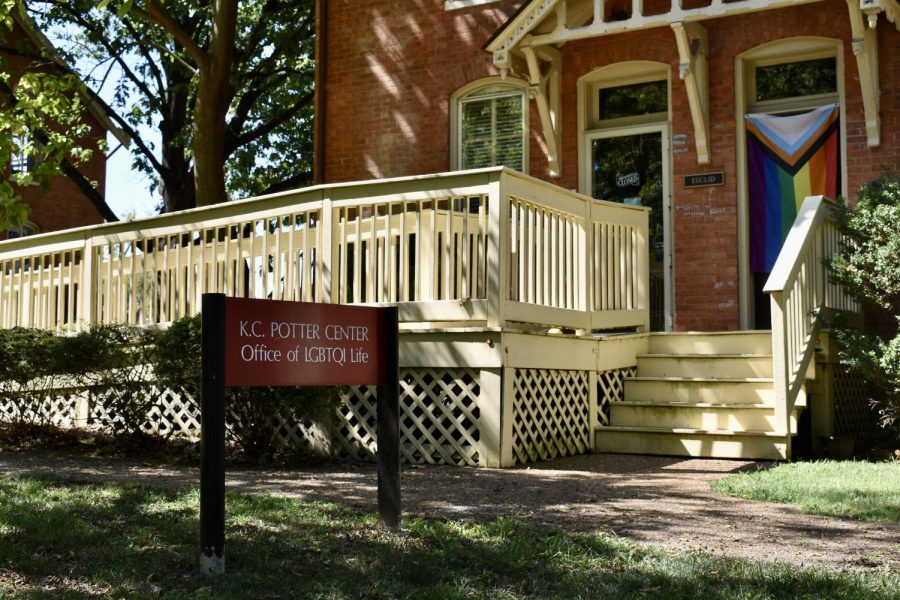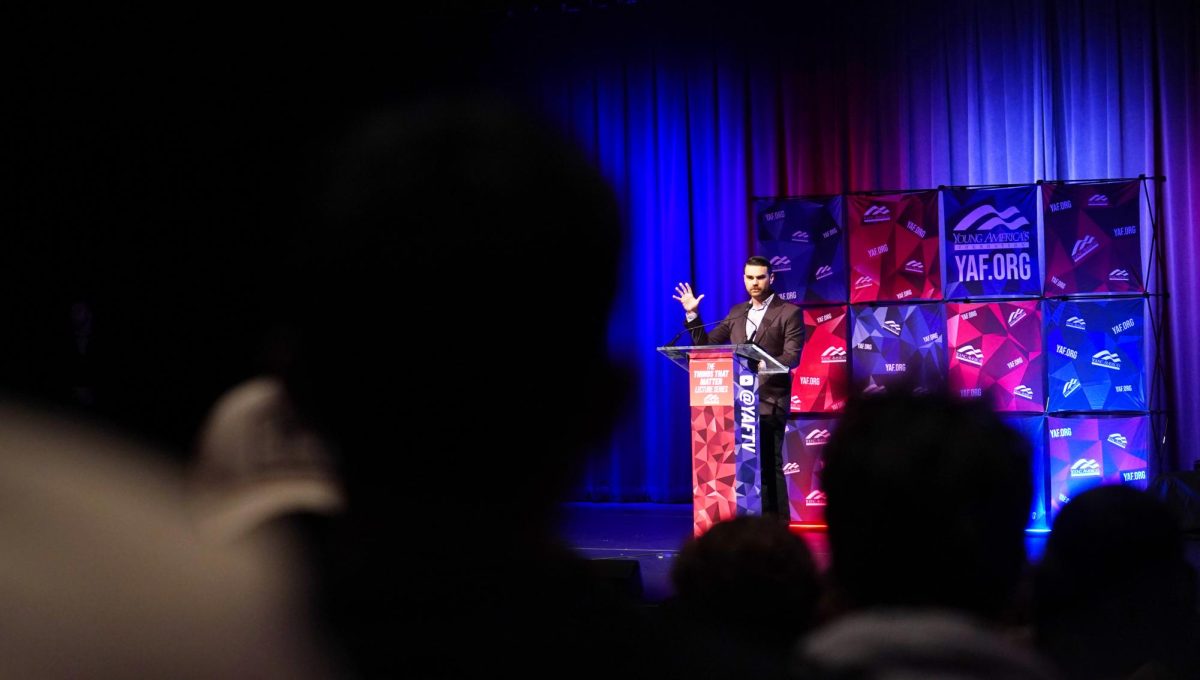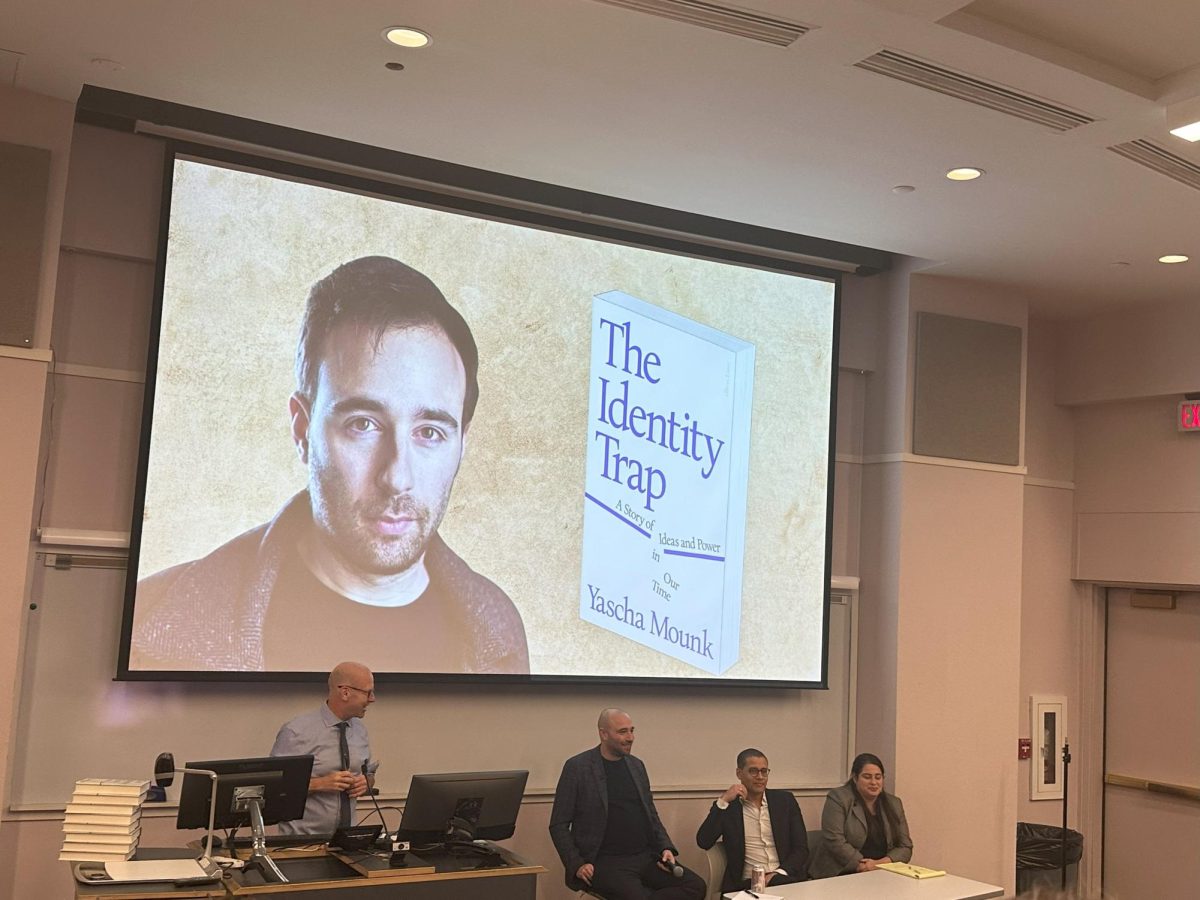Nadine Strossen, former American Civil Liberties Union president and senior fellow at the Foundation for Individual Rights and Expression, gave a talk titled “Free Speech and Hate Speech” at a discussion co-hosted by Vanderbilt Student Government, Women in Government and Voices for Liberty on Nov. 13.
Around 20 students were present for the talk, which was moderated by VSG President Hananeel Morinville, VSG Vice President Ellie Kearns and WIG President Amalie Johnson, all of whom are seniors. Topics of discussion included the various ways “hate speech” is defined, the importance of protecting free speech for all and the ways universities should promote free speech on campus.
Kearns said she was motivated to invite Strossen to campus to provide counterspeech to the rhetoric she believed Ben Shapiro would use later that night. She referenced the Vanderbilt Young Americans for Freedom event hosting Michael Knowles, a conservative political commentator who works at The Daily Wire, last December, which received criticism due to Knowles’ public transphobic rhetoric.
“When I saw that YAF would be hosting another controversial speaker on campus, I didn’t think posting a reactionary statement would be enough,” Kearns said in a message to The Hustler. “Instead, I wanted to host an event to help students contextualize the Shapiro event and what limiting YAF’s ability to bring speakers might mean for other forms of campus activism.”
Lecture
Strossen began by clarifying that hate speech is not a legal term because the Supreme Court has never defined any speech by its hateful content. According to Strossen, the Supreme Court has emphasized that the government cannot punish speech whose content it does not agree with, which is legally defined as viewpoint or content neutrality. Strossen said speech can only be restricted under the emergency principle.
“Speech with any message, including a hateful message, may be censored, restricted and punished, if, in particular facts and circumstances — considering not just the content but the context — the speech poses an emergency; either it directly causes specific, serious harm or it imminently threatens to do so,” Strossen said.
Strossen used last semester’s protests and demonstrations as anecdotes to say that speech that may be considered antisemitic or speech that “advocates for genocide” is protected under the First Amendment unless the speech is used to attack specific people. She justified responses she has heard from university presidents who have said answers to questions about whether people should be punished for statements made during protests are context-dependent, but she also expressed empathy for people who do not want to see others hurt by hateful language.
“For those of us who care about countering hatred right and not just giving the right answer from the First Amendment perspective, we go beyond that and we say, ‘Here’s what we should do,’” Strossen said. “I think that’s one of the reasons why the testimony from the [university] presidents was unsatisfying. If it’s a hateful message or students perceive it as a hateful message, even if you don’t want to punch those fingers, you [should] want to do something to support the students who feel threatened and intimidated.”
Strossen then went on to discuss how free speech has been attacked by both sides of the political aisle for decades, but she emphasized her belief in the importance of protecting free speech for positive and negative messages to ensure everyone is guaranteed that right. She specifically talked about the public’s reaction to the ACLU representing a neo-Nazi group in 1978. At the time, 15% of ACLU’s employees had quit, but those who rejoined later understood why the ACLU had taken the case.
“If we are to have freedom for speech that we love, then we have to defend freedom of speech that we loathe under the golden rule of free speech,” Strossen said.
She went on to say that she believes in protecting speech because words are powerful tools for good and bad actions. She said counterspeech is the best way to respond to hate speech, not censorship.
“I know that speech can be traumatizing and can have not only psychological ramifications but also physiological ramifications. I don’t dispute that, and I’ve been subject to hate speech myself,” Strossen said. “It’s our responsibility to harness our free speech rights and opportunities in every way that we can, to constantly and proactively preach messages of love, inclusion, diversity and equity. I don’t think we have to wait to hear a hateful message to counter it; I think we should constantly, proactively [and] affirmatively be celebrating DEI.”
Kearns asked Strossen about FIRE recently ranking Vanderbilt No. 140 in its annual College Free Speech rankings. Strossen explained that the purpose of the rankings is to provide “constructive feedback” to universities and to encourage them to prioritize protecting free speech on their campuses. According to Strossen, schools that rank lower may have policies in place that are supposed to protect the free speech rights of their students, but those policies are not enforced in such a manner.
“Often, there is a disparity or a disconnect between what the policies say on paper and what the practices are in the real world,” Strossen said. “You might have a policy that counts as speech protection but is not actually being enforced or is being violated.”
Strossen said that one of the most common ways this occurs is due to the lack of knowledge of what the policies mean, so she recommends providing training to administrative staff and faculty about free speech policies, similar to trainings they receive on sexual harassment policies. Additionally, she stated the best way to encourage free speech on campuses is to “empower” students to engage in conversations that challenge their viewpoints.
“It is very important to empower students and other members of the campus community to really exercise their free speech rights,” Strossen said. “That takes proactive efforts, not only through training and orientation at crucial times in their educational career but by encouraging virtually every class to provide opportunities for students to engage in robust conversations.”
After the moderators completed asking their questions, they initiated a Q&A between Strossen and the audience. Senior Zack Maaieh asked Strossen about her thoughts on universities adopting policies of institutional neutrality — policies which Maaieh claimed limit the free speech of certain individuals on campus — to protect the free speech of the overall campus community.
Strossen said the official definition of institutional neutrality outlines that the university, as an entity, should not take an official position or issue official declarations on any public policy issues that don’t directly impact the university itself, and this applies to the top spokespeople of the university, such as a chancellor. She said there is a “strong argument” that the policy would be more effective if it also applied to faculty members lower in a university’s chain of command.
“The lower you get in the pecking order, the more direct power those people have over vulnerable students, graduate students [and] non-tenured faculty members,” Strossen said. “The rationale is to liberate every single individual member of the campus community to express their views without being deterred that they are going against the official orthodoxy of the university itself.”
Student reactions
After the event, Maaieh said the university needs to make changes to how it implements its policies on free speech because he has seen people who are not willing to honestly express themselves in fear of punishment by the university.
“I think Vanderbilt has a lot to do, and I think it needs to take the ranking it received from FIRE very seriously,” Maaieh said. “I’ve seen how people’s speech has been restricted on campus and how people have felt scared to speak about certain issues, and that is a direct result of the policies the university implements.”
Senior Danielle Bernstein said her greatest takeaway from the event was Strossen’s argument that universities have a responsibility to encourage education about free speech and hate speech rather than dictate punishments when students engage in biased conduct.
“I [liked] her critique of the way that the university frames [institutional neutrality] and the way that it has many punitive measures for people who should not necessarily be punished for not being neutral,” Bernstein said.
Johnson said she found Strossen’s discussion of the legal understanding of hate speech “fascinating” and said it is an important topic to discuss given Vanderbilt’s policies regarding free speech and campus protests.
“It was an interesting perspective, especially with Vanderbilt’s institutional neutrality position and the way the First Amendment-protected rights of free speech and protest are actually treated on campus,” Johnson said. “I think that understanding where the line is legally drawn for hate speech can be really difficult to grapple with because speech can still cause great harm to people, even when it may not meet a legal definition to be censored or stopped.”
Kearns said she was “particularly struck” by Strossen’s discussion of counterspeech and how it can be used as a tool to fight against hate speech.
“[Strossen] stated that if individuals believe speech can be so powerful that its effects are tantamount to those caused by physical violence, speech must also have the power to effectively counteract that harm,” Kearns said.


